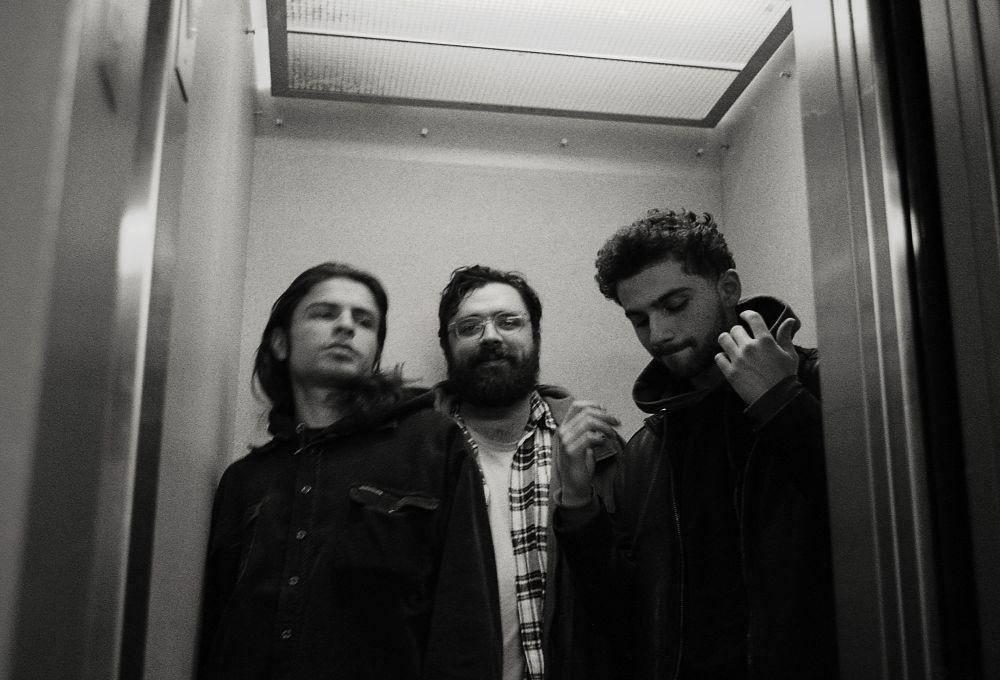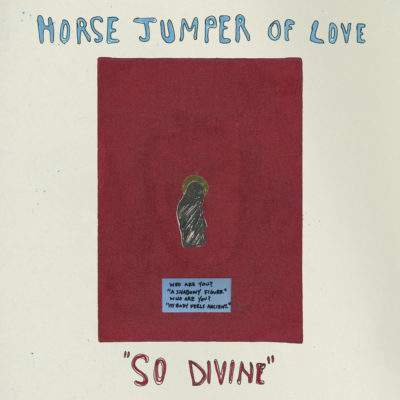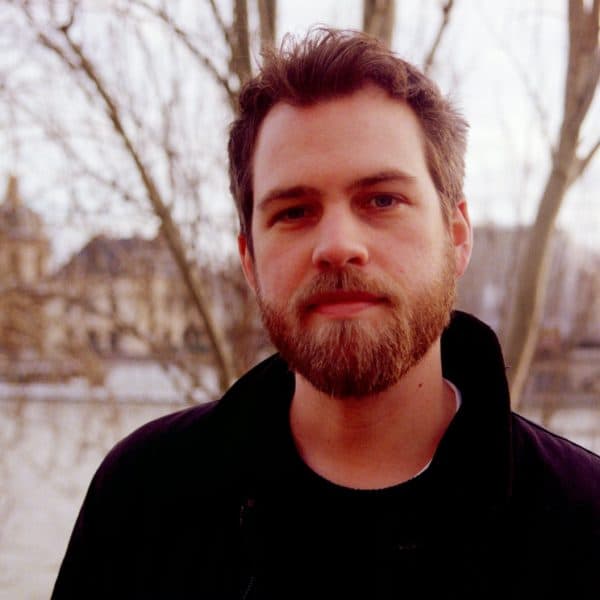Advertisement
Horse Jumper Of Love Revels In The Absurdity Of Divinity On Its Sophomore Album

In the late 1400s a young Michelangelo created his first painting, "The Torment of Saint Anthony." It depicts the elderly saint suspended in midair, swarmed by demons tugging on his black robes with raised fists. The demons are hybrids, some with the body of a spiny fish and a beastly head, others have ape-like bodies and reptilian appendages, equally morbid as they are absurd. What Michelangelo captured is the duality of divinity, spotlighting the side that encompasses all that is unearthly, supernatural and alien.

Like Michelangelo, Boston slow rock trio Horse Jumper of Love bask in the absurdity of the divine, and yet, reject feeling held in contempt of God. "So Divine" — the group’s second full length album — depicts a shadowy figure dawning a gold halo on its cover. I spoke to frontman Dimitri Giannopoulos on the phone about the story behind the title while the band was taking a driving break in rural Montana during their national headlining tour (which culminates in an opening slot for Duster at The Sinclair). “Originally I had this album art — it was a doodle of Jesus Christ with the head of a chicken and a bunch of squid tentacles as arms. The caption was ‘Jesus was so divine, he never entered the human form.’ ”
What this band has built its foundation on since forming in 2013 is a form of patience rarely found (or demanded) in most contemporary indie rock. On the album’s prickly opener “Airport,” Giannopoulos sings, “I’ll move at my own pace/ Like a stone-swimmer.” It’s entirely what the band represents, a sort of freedom from nothing, and in turn, a form of self-oppression. And yet, slow is what they do best. The album’s lead single “Poison” (whose video was shot in Giannopoulos’ father’s pizza place in Brookline) moves at a glacial pace but with an intensity lost upon the proverbial humdrum of “slow and steady” parables. The snare drum cracks like an ice fracture; the guitars chime in jarring bursts.
Giannopoulos paints a surrealist portrait of a dream that’s withered to only a feeling: “The horror glows the horror glows/ And everybody spits poison.” Much like an actual dream, these bouts of lyrical abstraction gives us a lot of nothing and very little of something vital. It’s a page from the book of postmodern American poetry with the likes of Burroughs or Jackson Mac Low lingering between the lines. “And you both sob like little cherries being crushed between my fingers,” he murmurs through a seized jaw on the twisted sing-song of “Stray Dog.” He credits Silver Jews mastermind David Berman and his book "Actual Air" as a direct influence.
There’s a tongue-in-cheek quality to "So Divine" that dares you to keep listening, similar to a devious child who gains attention by lighting curtains on fire. Songs like “Volcano” and “Nature” that begin with an angelic disposition literally erupt into thorny noise with a wink. Elsewhere are pangs of galactic paranoia, like in the whimsical space-folk of “Alien,” an inflated narration addressing an extraterrestrial peeping Tom. There’s a rawness and grit in every crevasse of the album that’s projected by unsettling imagery; raw meat, sickness, voyeurism, poison, and wild dogs are all recurring elements. It’s a slowcore "Naked Lunch," magnificent and dreadful just the same.
HJOL wants to show you what’s inside the hive while keeping you at arm’s length. Certain musical passages, like in the dystopian “Cops,” wobble with a relentless groove, like a junkie revving a chainsaw. “Ur Real Life” broods with an East Coast intensity found in bands like Suicide or Swans with the modern pep of a band like Palm, spirited in their chirpy, swirly delivery but cynical in their approach. Just when they pull you in, they show you their insides in the hopes that you’ll retreat in fear.
"So Divine" is full of compositional brilliance. Where much of the front end is shrouded in lyrical mysticism, the music itself is a fitting, albeit knotty, score to fleeting fragments of wild imagination. Giannopoulos uses his guitar as a sword, slicing between the blubber of his fantasies; John Margaris turns the bass into an angry growl, and Jamie Vadala-Doran utilizes space with the steady hands of a blacksmith. For having the potential to be pigeon-holed into a single-adjective genre, HJOL has chops that carry an immense emotional range.
Like a delicate rose or a swollen honeycomb, some of the sweetest things in life come with a catch. When you reach to pluck the sweet fruit from the branch, you get pricked by a thorn. There’s a sense of humor to this cycle, to the perceived delicacy of the divine and the inherent naivety of mankind. "So Divine" offers grace and beauty — and a wicked bite.
I asked the members of HJOL what they think happens when we die. “I think nothing,” Margaris replies in a snap. Giannopoulos hesitated before he answered. “I think that our brain gives us a massive DMT trip. Your brain helps you ease out of life, and then you don’t exist. Or… you turn into a ghost, and I’m cool with that. I could chill with that… Maybe I’d haunt the men’s toilet stall in O’Brien’s.” And that’s the humor is the divine.
Horse Jumper of Love will be performing at The Sinclair on July 30 in support of Duster.

